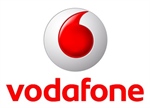
UK service providers must notify customers when they connect to a different network
New rules from UK telecoms regulator Ofcom will protect customers when they use their mobile phone on a foreign network. In addition, customers will be alerted if they are inadvertently roaming, perhaps because they're near an international border.
Article rating: No rating
A new forecast from research specialists Canalys shows the smartphone market is set to recover next year. Worldwide shipments declined by 12% last year but that decline is expected to slow to 5% this year.
Article rating: No rating

New Hutchison/Vodafone network would be biggest UK operator
Vodafone Group plc and CK Hutchison Group Telecom Holdings Limited have agreed to combine their UK telecommunication businesses, respectively Vodafone UK and Three UK. The merger will create a large new network operator to compete with Virgin Media O2 and EE.
Article rating: No rating
UK mobile payment service Paym will close on 7th March 2023. The service, which allowed users to make and receive payments using their mobile phone numbers, was launched in 2014.
Article rating: No rating

Which? seeks payout for Samsung and Apple smartphone owners
Consumer protection organisation Which? has been given permission by the UK's Competition Appeal Tribunal to represent Apple and Samsung smartphone buyers in a legal case against chip manufacturer Qualcomm.
Article rating: No rating